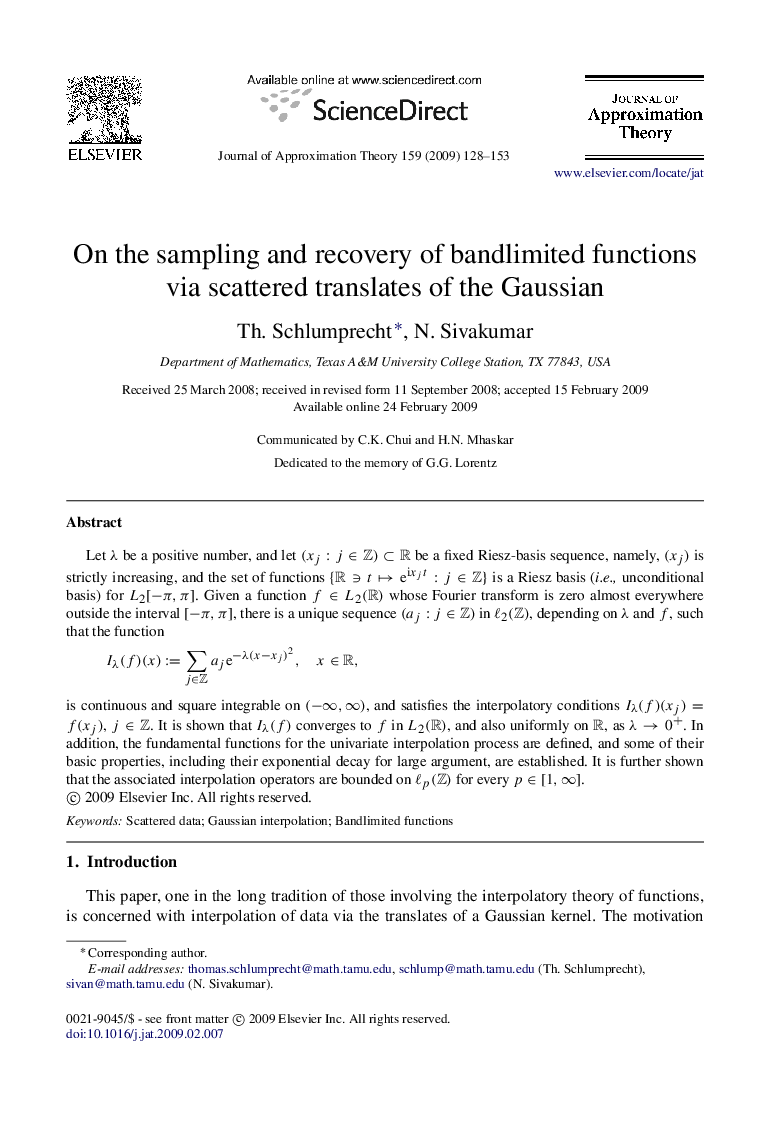| Article ID | Journal | Published Year | Pages | File Type |
|---|---|---|---|---|
| 4608024 | Journal of Approximation Theory | 2009 | 26 Pages |
Let λλ be a positive number, and let (xj:j∈Z)⊂R(xj:j∈Z)⊂R be a fixed Riesz-basis sequence, namely, (xj)(xj) is strictly increasing, and the set of functions {R∋t↦eixjt:j∈Z} is a Riesz basis (i.e., unconditional basis) for L2[−π,π]L2[−π,π]. Given a function f∈L2(R)f∈L2(R) whose Fourier transform is zero almost everywhere outside the interval [−π,π][−π,π], there is a unique sequence (aj:j∈Z)(aj:j∈Z) in ℓ2(Z)ℓ2(Z), depending on λλ and ff, such that the function Iλ(f)(x)≔∑j∈Zaje−λ(x−xj)2,x∈R, is continuous and square integrable on (−∞,∞)(−∞,∞), and satisfies the interpolatory conditions Iλ(f)(xj)=f(xj)Iλ(f)(xj)=f(xj), j∈Zj∈Z. It is shown that Iλ(f)Iλ(f) converges to ff in L2(R)L2(R), and also uniformly on RR, as λ→0+λ→0+. In addition, the fundamental functions for the univariate interpolation process are defined, and some of their basic properties, including their exponential decay for large argument, are established. It is further shown that the associated interpolation operators are bounded on ℓp(Z)ℓp(Z) for every p∈[1,∞]p∈[1,∞].
